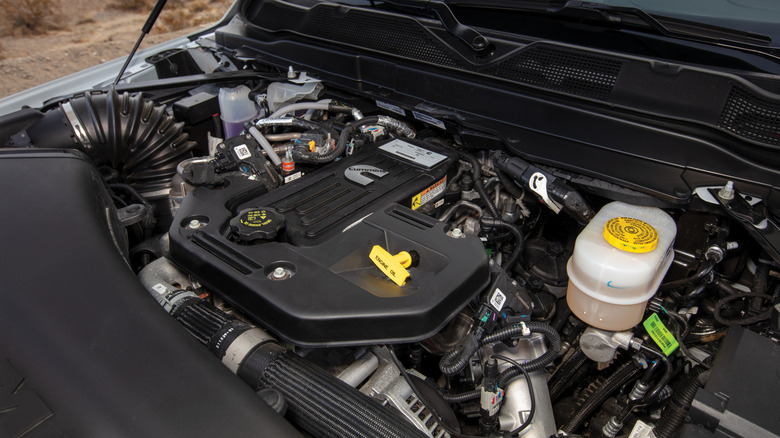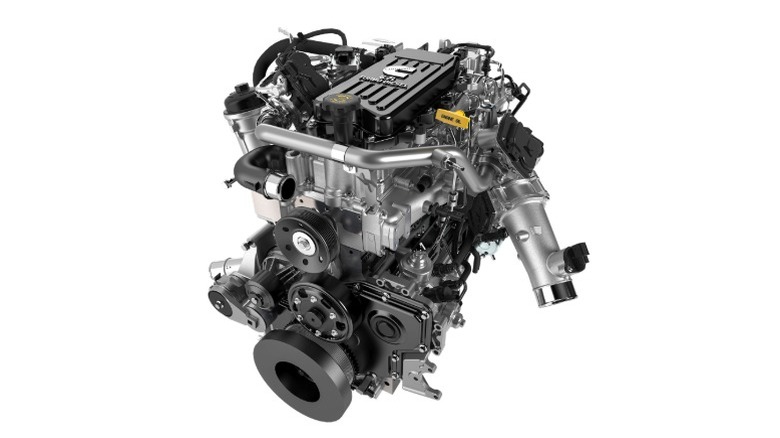What Is A Crankcase Breather And Why Do Diesel Engines Require It?
Ever-evolving emissions rules have resulted in several significant shifts in car design, although this is far from a new phenomenon. Regulators have been looking for ways to make cars more eco-friendly for many decades, both in terms of the emissions generated during their manufacturing and the CO2 emissions they produce on the road. A significant part of these on-road emissions used to come from the crankcase — up to 30%, according to a 1962 study — but thanks to changes in engine design, that's no longer true.
The build-up of gases in the crankcase is unavoidable, as small amounts of gas, referred to as blow-by, will inevitably leak past the piston rings over time. Eventually, that gas mixes with oil, which increases pressure in the crankcase. To prevent any issues caused by this pressure build-up, the oily gases need somewhere to go, and that's where the crankcase breather, or CCV filter, comes in. While older cars vented these polluting gases straight to the outside world, modern diesel engines include a filter to separate the oil and gas, then distribute both back into the engine. The filter catches the oil, which drips back down to the crankcase, while the gases are channeled back to the intake manifold.
Keeping the engine breathing
As well as reducing the amount of emissions a car produces and therefore helping to reduce air pollution in cities, regulating blow-by gases effectively also helps keep an engine in good condition. An excessive build-up of pressure in the engine can cause higher levels of oil consumption and can also contaminate other engine components, leading to reduced performance overall. So, having a good system to keep this pressure in check is a win-win for both the environment and you as the driver.
Blow-by gases are produced during the compression and power strokes of a four-stroke engine's cycle, and so any four-stroke diesel will require a suitable filtration system to prevent gas build-up. Over time, the breather valve and filter will become less effective, so it's often advisable to replace it. Exactly when you should replace the CCV filter will vary between vehicles, but if you're looking to take care of your engine yourself rather than let a shop do the work, make sure you don't overlook this task. It's best to check your owner's manual for a replacement schedule, or owners' forums if the manual doesn't specify a service interval.

